SUMMARY
This is AI generated summarization, which may have errors. For context, always refer to the full article.
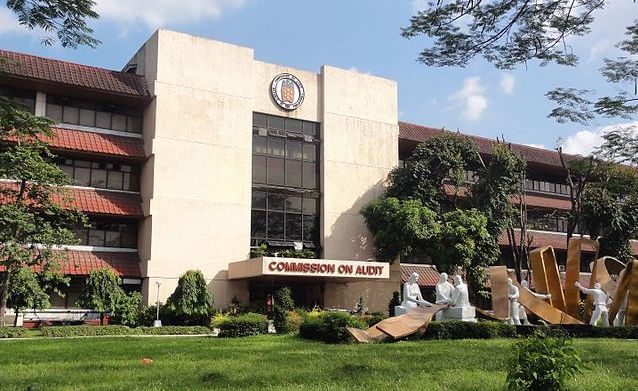
Three agencies that are lead implementors of the government’s COVID-19 response program have failed to fully document and comply with procurement rules, paid out certain contractors for supplies and projects not fully delivered, and have yet to fully account for all the funds that they had disbursed under the Bayanihan 1 and 2 laws.
The aggregate amount that the Office of Civil Defense (OCD), the Office of the Presidential Adviser on the Peace Process (OPAPP), and the Department of the Interior and Local Government (DILG) gave bad contractors and bad projects ran into hundreds of millions of pesos.
A composite 100-plus supply contracts they had separately awarded were either not reported in the Government Procurement Policy Board (GPPB) website, had incomplete documentary requirements, and were not supported by market price research.
Too, these agencies separately but similarly spent hundreds of millions of pesos on innumerable catering services, hazard pay, local transportation, hotel accommodation, PPEs, relief goods, and meals for their personnel. In many cases, a dozen suppliers got several repeat contracts from these agencies.
The audit reports of the Commission on Audit (COA) for the year 2020 on the three agencies – the OCD, the OPAPP, and the DILG – raise multiple adverse observations.
The OCD, an agency attached to the Department of National Defense, is the secretariat of the Inter-Agency Task Force on Emerging Infectious Diseases, the National Task Force Against COVID-19 (NTF), as well as the National Disaster Risk Reduction and Management Council (NDRRMC).
Retired generals
DILG Secretary Eduardo Año and Defense Secretary Delfin Lorenzana are co-chairs of the NTF, which handles “strategic operations” under the government’s National Action Plan to Fight COVID-19.
OPAPP Secretary Carlito Galvez Jr. is NTF’s chief implementor and national incident commander.
Undersecretary Ricardo Jalad is OCD administrator and NDRRMC executive director.
All four officials are retired generals. Jalad and Año come from Class 1983 of the Philippine Military Academy (PMA); Galvez, from PMA Class 1985; and Lorenzana, from PMA Class 1973.
Año retired in October 2017, Galvez in December 2018, Jalad in January 2015, and Lorenzana in 2004, Soon after their retirement, however, President Rodrigo Duterte named Año as DILG secretary, and Galvez as OPAPP secretary.
Duterte had appointed both Año and Galvez as Armed Forces chief of staff, and Lorenzana as defense secretary.
OCD audit
The agencies now headed by these four retired generals play key roles in managing the pandemic. Since they are headed by ex-military men, these offices would presumably be run with military precision and orderliness.
Reports by COA, however, show that these agencies have not been exemplars of compliance with procurement rules, and due diligence in the use of pandemic-response funds.
COA’s 2020 audit report on the OCD raised the following concerns:
- “At least 61 procurement contracts (PC) through Emergency Procurement under the Bayanihan Acts were not supported with Market Research as basis for Price Negotiations as required under GPPB Circular 01-2020 and GPPB Advisory 04-2020 thus reasonableness of the contract costs could not be ascertained; (Note: The aggregate value of these contracts was P347.7 million);
- “67 contracts worth P309.2 million were not posted on the GPPB website as required by GPPB guidelines;
- “57 contracts were not compliant with reportorial requirements; some POs (purchase orders), WOs (work orders), and PCs were not adequately supported with mandatory documentary requirements;
- “Paid claims for the procurement of goods and services totaling P94,551,822.13 in favor of various suppliers were not supported with contracts;
- “Disposition forms were attached to 35 disbursement vouchers with an aggregate amount of P62,266,642.79 indicating among others that due to the exigent needs for the required services and to avoid delays, the necessary procurement documents are dispensed with;
- “OCD paid hazard pay beyond the enhanced community quarantine or from May 17 to September 18, 2020 in the total amount of P4.7 million; and
- “The balance of Due from National Government Agencies Account amounting to P161,598,289.54 as of yearend is unreliable due to the discrepancy of P56,282,529.23 between the records of OCD and PS-DBM (Procurement Service-Department of Budget and Management) caused by unrecorded deliveries of P16,247,300.20. Fund transfer amounting to P40,200,000 not received by PS-DBM and unaccounted difference of P164,770.98).”
COA stressed that GPPB guidelines for emergency procurement under Bayanihan 1 state that “to expedite procurement of highly needed supplies, materials, equipment, utilities, telecommunications, and other critical services…at the most advantageous price to the government with the necessary safeguards for the prevention of abuses and corruption in the procurement process.”
In the 2020 General Appropriations Act, OCD’s appropriation was P1,236,366,000 or P1.24 billion. But its total allotment in fact rose to P3,466,293,199 during the year.
OCD has a total manpower of 506 regular employees, yet has 655 total plantilla positions.
OPAPP audit
COA’s 2020 audit report on the Office of the Presidential Adviser on the Peace Process or OPAPP also enrolled a slew of concerning observations.
In the 2020 General Appropriations Act, OPAPP was allotted P2.71 billion.
As of December 31, 2020, OPAPP has a 642-strong workforce, including 452 contract of service, 164 contractual (plantilla), 18 consultants, 5 co-terminus appointees of the President, and 3 job-order personnel.
The annexes to COA’s audit report on OPAPP indicate a lot of big spending that largely went to benefit the agency’s personnel.
For instance, apart from paying P103.3 million in salaries and wages, OPAPP also paid its workforce a bounty of other compensation, including:
- P16.56 million in year-end bonus
- P4.09 million in personnel economic relief allowance or PERA
- P3.3 million in honoraria
- P3.11 million in overtime and night pay
- P1.08 million in clothing uniform allowance
- P2.9 million in representation allowance
- P1.92 million in hazardous duty pay
- P853,750 in cash gift
- P796,250 in transportation allowance
Moreover, OPAPP drew from its maintenance and other operating expenses hefty sums for local traveling expenses of P17,640,189.85, and foreign traveling expenses of P791,804.95 – or a combined travel bill of P18.43 million.
DILG audit
Last but not least are the details in COA’s 2020 audit for the DILG, which supervises the Philippine National Police, Bureau of Fire Protection, National Police Commission, Patrol 117, among others.
COA said that, in all, DILG received a P3.62-billion allotment for COVID-19 pandemic under Bayanihan 1 and 2.
R2RKN
By December 31, 2020, DILG has 8 undersecretaries, 8 assistant secretaries, and 4,367 permanent employees, out of a total of 4,427 personnel complement.
COA’s observations on DILG’s use of the COVID-19 fund releases follow:
- “Due to the unimplemented planned activities, such as procurement of equipment, drugs, and medicines and the like, the Department’s utilization rate on the allotment received under the ‘Bayanihan to Heal as One Act’ and the ‘Bayanihan to Recover As One Act’ in the total amount of P3,618,600,355 was below 75% in the DILG Central Office and seven Ros (regional offices), resulting in unobligated allotment of P447,629,260.33 or 12.37% of the total allotment;
- “Allocation for training expenses amounting to P6,970,000 utilized for the expenses of emergency operations center which are not related to training, contrary to Section 17 of the General Provisions of the General Appropriations Act or Republic Act (RA) No. 11465 and Chapter 3 of the GAM-NGAs, Volume III;
- “Disbursements made thru cash advances amounting to P6,760,494.67 which contravened existing government rules and regulations on the handling and liquidation of cash advances and other standard process/procedures on disbursements, casting doubt on the validity and legitimacy of the expenditures;
- “Lapses in the procurement, recording, and safekeeping of personnel protective equipment and other medical supplies; and
- “Incomplete documentation on the hiring of contact tracers.”
Under Bayanihan 1, or Republic Act 11469, a total of P106,800,000 was released to DILG through special allocation release order (SARO) No. BMB – D – 20 – 0012603 dated June 24, 2020, for expenses of the Emergency Operating Center of DILG Central and Regional Offices, and the procurement of medical supplies and generator sets.
Bayanihan 2 or RA 11494 later allotted another P5 billion to finance hiring of at least 50,000 contact tracers to be implemented by DILG, which “shall include but not limited to recruitment, training, compensation, monitoring, logistics, and operational expenses.”
According to COA, DBM had released to DILG several SAROs, including P3.51 billion as of December 31, 2020, another P2.53 billion on October 2, 2020; and P989,140,355 on November 25, 2020.
But perhaps because not all these had been obligated, COA said that, in all, DILG received a P3.62-billion allotment for COVID-19 pandemic under Bayanihan 1 and 2. This amount possibly also includes P447,629,260.33 or 12.37% that had not been obligated or used, as of yearend 2020. – Rappler.com
This piece is republished with permission from the Right to Know, Right Now! (R2KRN) Coalition.
The R2KRN Coalition is a network of advocates campaigning for the passage of the Freedom of Information law and the promotion of FOI practice in the country.
Add a comment
How does this make you feel?

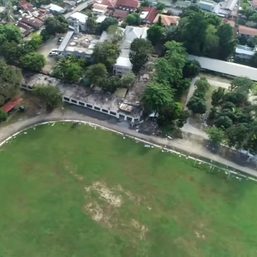
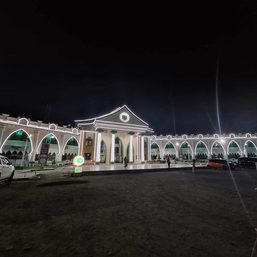
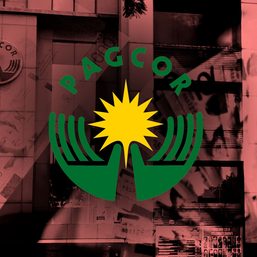
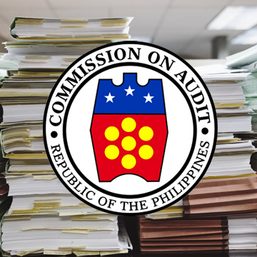

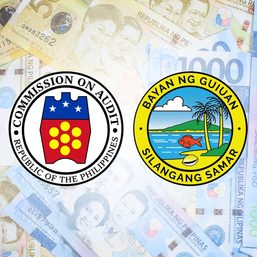
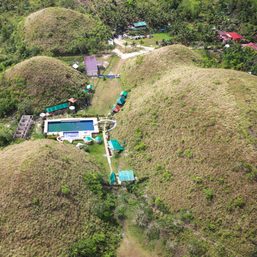



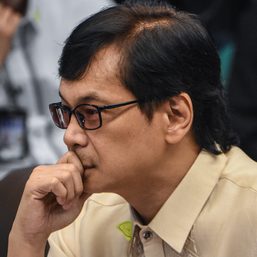



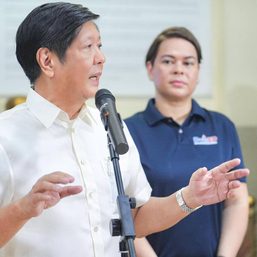
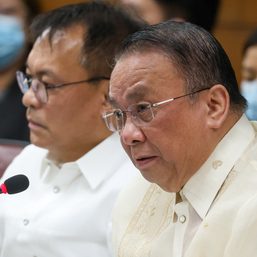
There are no comments yet. Add your comment to start the conversation.